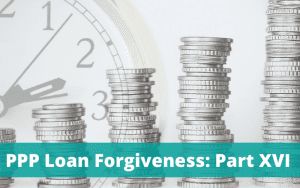Often-Overlooked IRS Section 139 Provides Relief
Can we deduct COVID-19-related expenses used to help our employees?
This is an excellent question from some of our clients, and the answer is yes. It’s a small silver lining in this pandemic situation because not only is the expense deductible for the employer, but the payment to the employee is also tax-free (not included in their gross income). Section 139 of the IRS Code came about as a result of the 9/11 attacks and applied to any “federally declared disaster.”
The Stafford Act of March 13, 2020—declaring COVID-19 a national emergency—permits the use of Section 139 for employers and employees today. The IRS ruling is here, subject to updates.
In the wake of so many new offerings from the government to help, like the Coronavirus Aid, Relief and Economic Security (CARES) Act, it is easy to see why Section 139 from the 2001 attack on the World Trade Center can get lost in the shuffle.
IRS Sections
Section 139 applies to any ”federally declared disaster” as defined in Section 165 (i) (5) (A) of the tax code. As such, “qualified disaster relief payments” fall under this umbrella.
To qualify, payments must be used to reimburse necessary and reasonable personal, living, family, or funeral expenses resulting from a qualified disaster. For instance, employers can reimburse employees or directly pay for things not covered by insurance, such as
- Over-the-counter meds
- Disinfectants (hand wipes) and other COVID-fighting cleaning supplies.
- Various work-from-home expenditures
Note: The qualified disaster payments can be made to an individual employee or to all employees.
Important exclusions: Expenses that are compensated by insurance and replacing lost income are not included. Therefore, sick pay or family medical leave remain taxable to the employee and are still deductible to the employer as before.
Reporting
Everything included in the gift (qualified disaster) payments must be related to the COVID-19 pandemic. Although the reimbursements do not have to be formalized in a written policy, we recommend that our clients have some verbiage placed in the Employee Manual and initialed by the employees, not only so employees understand the specific guidelines, but also to remind them that the expenses are dispensed fairly to all employees who qualify. Once the decision to provide relief under Section 139 has been made, all employees would be eligible. You might also check with your Human Resources specialist to make sure of your company’s policies and documentation requirements in this regard.
As your accountant, we encourage you to keep careful records of
- The amounts you paid out and to whom
- The beginning and ending dates of any Section 139 “relief plan”
- A list of expenses that will be reimbursed or paid on behalf of your employees, and
- Any maximum dollar figure per-employee or a total figure that the employer will pay in aggregate to their employees.
Our Thoughts
Giving your employees financial assistance during the pandemic is very helpful if you can afford it. It might be an excellent way to help them through this difficult time, both financially and psychologically. Losing one’s family members or trying to care for them when money is tight is a double whammy. The expenses are deductible for the employer, making the tax-free gift to the employee a feel-good hit to the bottom line. These are different times. Being in business is not all about making money. It’s making a contribution, too, and being a good citizen.
Section 139 was part of the tax code before COVID-19. But everything is changing. To make double sure you’re complying with all the correct and current laws, please check with us.



